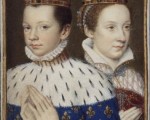
On this day in history events for 18-24 April.
[Read More...]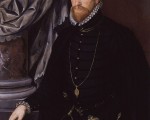
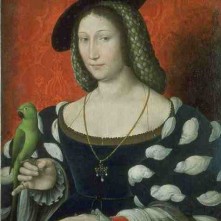
Marguerite de Navarre
1492 – Birth of Marguerite de Navarre (also known as Marguerite of Angoulême and Marguerite de France), sister of Francis I of France, daughter of Louise of Savoy and Charles, Count of Angoulême, and author of "Miroir de l'âme pécheresse".
1533 – The Royal Council was ordered by Henry VIII to recognise Anne Boleyn as Queen.
1548 – Death of Sir John Welsbourne, Gentleman of the Privy Chamber to Henry VIII and Justice of the Peace.
1554 - Sir Thomas Wyatt the Younger was beheaded and then his body quartered for treason, for leading Wyatt's Rebellion against Queen Mary I.
1609 - Death of John Lumley, 1st Baron Lumley, conspirator (Ridolfi Plot, patron and collector. His library was said to be one of the largest in England, and he collected manuscripts, books, paintings, sculptures, marble busts and furniture. Lumley was buried at night, probably so that he could be buried with a Catholic service, in the Lumley Chapel of St Dunstan's in Cheam.
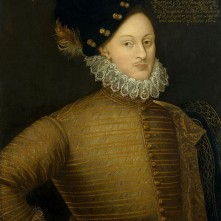
Edward de Vere
1533 – Thomas Cromwell became Chancellor of the Exchequer.
1533 - Anne Boleyn attended mass on Easter Saturday “with all the pomp of a Queen, clad in cloth of gold, and loaded (carga) with the richest jewels”. It was her first public appearance as Queen, and it was time to make a statement that she was Henry VIII’s rightful wife and Queen.
1535 – Death of Giles Duwes (Dewes), musician, royal librarian and French tutor to Henry VIII's children: Arthur, Henry, Margaret and Mary, and to Henry VIII's daughter, the future Mary I. He also taught Mary I music. He was buried in the church of St Olave Upwell in London.
1550 – Birth of Edward de Vere, 17th Earl of Oxford, courtier and poet. The Oxfordian theory of Shakespearean authorship proposes that de Vere wrote Shakespeare's works and some believe that he was the illegitimate son of Elizabeth I.
1587 – Death of Sir Thomas Bromley, Lord Chancellor to Elizabeth I, at York House in London. He was buried in Westminster Abbey. It was Bromley who had presented Elizabeth I with Parliament's petition for the execution of Mary, Queen of Scots, and it was he who applied the Great Seal on her execution warrant in 1587.
1639 – Death of courtier Robert Carey, 1st Earl of Monmouth, youngest son of Henry Carey, 1st Baron Hunsdon, and grandson of Mary Boleyn.
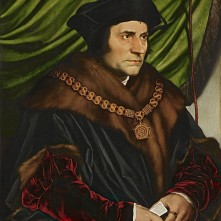
Sir Thomas More
1534 – Sir Thomas More was summoned to Lambeth to swear his allegiance to the “Act of Succession”.
1557 – Death of John Brydges, 1st Baron Chandos of Sudeley, landowner, soldier and Lieutenant of the Tower of London. He died at Sudeley Castle. When Lady Jane Grey was in the Tower, she gave him her English prayer book in which she wrote a homily for him, and when Elizabeth was in the Tower, he was accused of being too lenient with her.
1598 – Henry IV of France issued the Edict of Nantes granting the Huguenots freedom of religion in France.
1606 – Death of Richard Day, Church of England clergyman, printer and son of the famous printer John Day, who had printed John Foxe's “Actes and Monuments”. In 1578 Richard printed his own translation of “Christ Jesus Triumphant” by Foxe, and then got into trouble with his father when he started printing his father's works without his permission. His father had his printing equipment and stock seized, and Richard was forced to become a clergyman, becoming Vicar of Mundon, Essex.
1630 – Death of Anne Howard (née Dacre), Countess of Arundel, at Shifnal. She was laid to rest in the Fitzalan Chapel of Arundel Castle. Anne was the eldest daughter of Thomas Dacre, 4th Lord Dacre of Gilsand, and wife of Philip Howard, 13th Earl of Arundel. Anne was a staunch Catholic and harboured priests.

Bothwell
1556 – Death of Sir Anthony Kingston, former Constable of the Tower of London, at Cirencester while on his way to be tried in London. He was accused of conspiring to rob the Exchequer for money to support Henry Dudley and his plot against Mary I. Dudley appears to have been planning an invasion of English exiles from France to topple Mary and replace her with Elizabeth.
1565 – Birth of Edward Gresham, astrologer, astronomer and magician, in Stainsford, Yorkshire. He is known for his treatise “Astrostereon” and his astrological almanacs, published between 1603 and 1607.
1578 - James Hepburn, 1st Duke of Orkney and 4th Earl of Bothwell, died aged forty-four at Dragsholm Castle after being imprisoned and held in appalling conditions by Frederick, King of Denmark. It is said that the imprisonment caused Bothwell to go insane. Bothwell was the third husband of Mary, Queen of Scots.
1587 – Death of Edward Manners, 3rd Earl of Rutland, at Greenwich. He'd been taken ill earlier that month. He was buried on 15th May at Bottesford, Leicestershire.
1599 – Death of Sir Henry Wallop, member of Parliament and administrator, in Dublin while serving there as Treasurer-at-War. He was buried in St Patrick's Cathedral, Dublin.
1530 – Death of Gilbert Tailboys, 1st Baron Tailboys and first husband of Elizabeth (Bessie Blount), mistress of Henry VIII. He was laid to rest in South Kyme Church.
1545 – Death of Sir Robert Dymoke, champion at the coronations of Henry VII and Henry VIII. He also served in the households of Catherine of Aragon and Anne Boleyn.
1589 – Burial of Frances Radcliffe (née Sidney), Countess of Sussex and founder of Sidney Sussex College, Cambridge. She was buried in Westminster Abbey, in the Chapel of St Paul.
1599 – Robert Devereux, 2nd Earl of Essex, was sworn in as Lord Lieutenant of Ireland.
1624 – Burial of Sir John Scudamore, husband of Mary Shelton, who served in Elizabeth I's Privy Chamber, at Holme Lacy. It was alleged that Elizabeth I broke one of Mary's fingers in a temper.
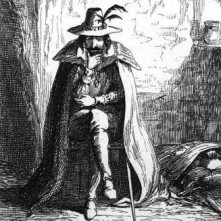
Guy Fawkes
1512 – The Mary Rose began her first tour of duty in the English Channel on the hunt for French warships.
1521 – German Protestant reformer, Martin Luther, appeared in front of Emperor Charles V at the Diet of Worms. He had been summoned to the diet to either recant or reaffirm his religious views.
1550 – Birth of Francis Anthony, alchemist, apothecary and physician. He was probably born in London and was the son of Derrick Anthony, a goldsmith. Anthony was imprisoned twice for practising as a physician without a licence, and is known for his aurum potabile (drinkable gold), made from gold and mercury, which he claimed had amazing curative powers. His works included Medicinae chymicae et veri potabilis auri assertio (1610).
1570 - Baptism of Guy Fawkes, conspirator, at the Church of St Michael le Belfrey in York.
1578 – Burial of Thomas Drant, Church of England clergyman and poet. He was part of the “Areopagus” intellectual circle at court, but also had an ecclesiastical career and was chaplain to Edmund Grindal, Bishop of London. He is known for his work on prosody (metre), and actually drew up some rules concerning it, which were mentioned by Edmund Spenser, Gabriel Harvey, Philip Sidney, Edward Dyer and Fulke Greville.
1587 – Death of Anne Seymour (née Stanhope), Duchess of Somerset and wife of Edward Seymour, Duke of Somerset and Lord Protector during part of Edward VI's reign. Anne was a reformer and a literary patron. She died at Hanworth Place and was buried at Westminster Abbey.
1595 – Death of Ferdinando Stanley, 5th Earl of Derby and literary patron. His sudden death caused rumours of poisoning and witchcraft, but nothing was ever proved. Stanley was patron of the Strange's Men company of players, which probably included William Shakespeare, and he was also a patron of poets. It is thought that he also was a poet.
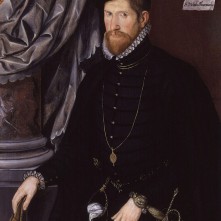
Nicholas Throckmorton
1534 - Sir Thomas More, Henry VIII's Lord Chancellor, was sent to the Tower of London after refusing to swear the “Oath of Succession”.
1554 – Sir Nicholas Throckmorton was acquitted of treason for being involved in Wyatt's Rebellion. The jurors were arrested straight after the trial and Throckmorton remained in prison until January 1555.
1554 – Thomas Wyatt the Younger's head was stolen in the rejoicing after Throckmorton's acquittal.
1554 – Birth of Stephen Gosson, Church of England clergyman, satirist and anti-theatrical polemicist. In 1579 he published his “Schoole of Abuse, containing a pleasant invective against Poets, Pipers, Plaiers, Jesters and such like Caterpillars of the Commonwealth”.
1568 – Birth of George Brooke, conspirator, son of William Brooke, 10th Baron Cobham and his wife Frances (née Newton). Brooke conspired with Sir Griffin Markham and William Watson to kidnap King James I and end the persecution of Catholics. The plot was called the Bye Plot, and never took place because the authorities found out about their plans. Brooke was arrested, tried at Winchester 15th November 1603 and executed on Winchester Castle green 5th December 1603.
1595 – Execution of Henry Walpole (St Henry Walpole), Jesuit martyr, in York. He was hanged, drawn and quartered. He was accused of treason on three counts "Walpole had abjured the realm without licence; that he had received holy orders overseas; and that he had returned to England as a Jesuit priest to exercise his priestly functions".

The Huguenots were French Protestants, formed as a part of the general Reformation that started in Germany because of Martin Luther and swept through the Continent. It hit France around 1517, where the movement quickly grew in popularity. The movement was particularly popular in French areas where the population was unhappy with the government or areas that were experiencing economic hardship. The name “Huguenot” is of uncertain origin; some believe the Huguenots are named after Besançon Hugues, leader of the movement in Geneva, Switzerland. Another possibility finds its roots in the German word Eidgenossen, meaning confederates bound by oath, which became aignos in France and referred to patriots living in Geneva who were against the Duke of Savoy during 1520 to 1524. In August 1523, the first martyr, Jean Vallière, was burnt at the stake.
[Read More...]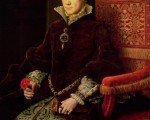
On 30th March 1558, Queen Mary I made her last will and testament, believing that she would soon give birth and knowing that childbirth was a risky process.
[Read More...]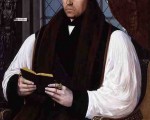
Today is the anniversary of Thomas Cranmer’s execution on 21st March 1556, when he was burned at the stake in Oxford for heresy. Here is a list of articles from the Tudor Society and the Anne Boleyn Files about this Oxford Martyr.
[Read More...]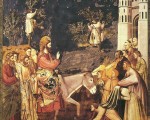
Palm Sunday is the sixth Sunday in Lent and marks the start of Holy Week. It commemorates the triumphal entry of Jesus Christ into Jerusalem on a donkey the week before the Resurrection. It is an event which features in the Gospels of Matthew, Mark, Luke and John, and here it is from John:
[Read More...]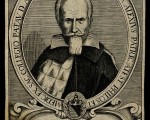
On 17th March 1565, Alexander Ales (also known as Alesius and Aless), theologian and reformer, died in Edinburgh, Scotland.*
Alexander Ales was born Alexander Allane or Alan at Edinburgh on 23 April 1500. From the age of twelve he was educated at the University of St Andrews, at St Leonard’s College, graduating BA after three years there. Ales became friends with theologian Philip Melancthon in 1532 when Ales began studying at Wittenberg University, and he began to be concerned with making the Bible available in the vernacular. He published an open letter to James V of Scotland in 1533, Alexandri Alesii epistola contra decretum quoddam episcoporum in Scotia, appealing for him to annul recent legislation making it illegal to own or distribute the New Testament in the vernacular. When the Catholic Johannes Cochlaeus, countered this with a letter to James accusing Ales of translating the New testament and sending it to Scotland, and claiming that it would cause unrest, Ales answered with Alexandri Alesii Scotti responsio ad Cochlei calumnias. In this letter, Ales emphasised how Continental reformers were simply trying to lead people back to the Bible and the teaching of the Early Church.
[Read More...]
On 4th March 1526, Mary Boleyn gave birth to a son she named Henry Carey. Mary Boleyn was a member of Henry VIII’s court, was married to courtier William Carey and was also the older sister of Anne Boleyn, who would become Queen of England. I believe that Mary Boleyn was also the mistress of Henry VIII from around 1522 – 1525.
Over the centuries, there has always been a great deal of debate as to who Henry Carey’s father was. Henry Carey was conceived during 1525, the year, I believe, that Mary’s relationship with Henry VIII was coming to an end. It may be possible that during the last few times the King slept with Mary she conceived. It has also been suggested that Henry would not have wished to share Mary with her husband, keeping her to himself during the entire period of their relationship.
[Read More...]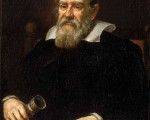
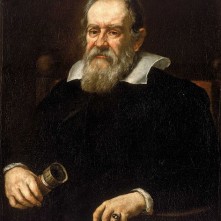
Galileo Galilei
1499 – Death of James Goldwell, Bishop of Norwich, at the bishop's palace in Hoxne, Suffolk. He was buried in Norwich Cathedral, in the chantry chapel.
1503 – Death of Henry Deane, administrator and Archbishop of Canterbury. As well as serving Henry VII as Archbishop, Deane also served as Chancellor of Ireland, Deputy Governor for Prince Henry and Keeper of the Great Seal. He died at Lambeth Palace and was buried at Canterbury Cathedral at a lavish funeral.
1536 – Death of Richard Rawlins, Bishop of St David's and former warden of Merton College.
1551 - Thomas Arden, businessman and inspiration for the 1592 Elizabethan play, “The Tragedie of Arden of Feversham and Blackwill”, was murdered by his wife, Alice, and her lover, Thomas Morsby, and conspirators.
1564 – Birth of Galileo Galilei, the Italian physicist, mathematician, astronomer, and philosopher, in Pisa, Italy. He was one of the central figures of the Scientific Revolution and supported Copernicanism (the heliocentric model). He has been referred to as “the Father of Modern Science”, “the Father of Modern Physics” and “the father of modern observational astronomy”. He is also known for his discovery of the Galilean Moons (Jupiter's satellites), his improved military compass and his work on the telescope.
1571 – Death of Sir Adrian Poynings, soldier. He served as a soldier in Boulogne from 1546 to 1550, when he was made Lieutenant of Calais Castle, then in the St Quentin campaign of 1557 and in Le Havre in 1562.
1598 – Death of John May, Bishop of Carlisle, at Rose Castle, his episcopal residence. He was buried in Carlisle Cathedral.
1616 – Death of Sir George Carey, Lord Deputy of Ireland. He was buried at Cockington, Devon.
[Read More...]
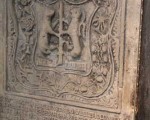
Today has gone down in history as the anniversary of the execution of Lady Jane Grey, but she wasn't the only one executed that day, her husband, Lord Guildford Dudley, was also executed.
Guildford was born in around 1535 and was the fourth surviving son of John Dudley, Duke of Northumberland, and his wife Jane (née Guildford). Guildford's family had negotiated for him to marry Margaret Clifford, daughter of Henry Clifford, 1st Earl of Cumberland, but on 25th May 1553 he married Lady Jane Grey, in a triple marriage ceremony which also saw his sister Katherine marrying Lord Henry Herbert, son of the Earl of Pembroke, and Jane's sister Katherine marrying Lord Henry Hastings. They got married at the Dudley family's London residence, Durham Place.
[Read More...]

It is thought that Thomas Tallis, alternatively spelled “Tallys,” could have been born on 30 January 1505, though it is not known for certain. What is known is that Tallis did not die until 1585, and that he contributed greatly to the development and composition of English choral music. Not much is known about Tallis’s early life. There are no records of his education or really of his whereabouts until Tallis is well into his 20s. There is also no contemporary portrait of him, with the only existing portrait having been executed sometime after his death.
[Read More...]
Today is the anniversary of the death of Thomas Tallis, musician and composer, on 23rd November 1585 at his home in Greenwich. Greenwich. He was buried in St Alfege’s Church, Greenwich, in the chancel and the text on the brass memorial which once marked his tomb read:
[Read More...]